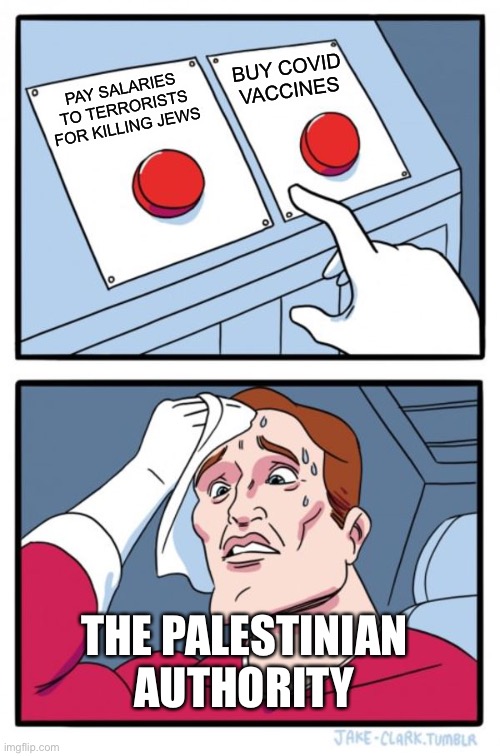Seth Frantzman: Israel's Strategy To Stop Iran's Existential Threats
Israel is willing to take action to prevent Iran obtaining nuclear weapons, Israeli Defense Minister Benny Gantz said this week. His statement framed part of a full-court press of Israel warning of Iran's regional threats as Tehran continues to enrich uranium. Prime Minister Benjamin Netanyahu has long warned of Iran's pursuit of nuclear weapons, but the transition to a new administration in Washington has been exploited by Iran to increase its enrichment and threats. A senior Israeli defense official laid out to me this week how seriously Israel views the threat. Tehran should listen.Iran doesn’t hate Israel
Israel has acted in the past to prevent Iraq and Syria from obtaining nuclear capabilities. Netanyahu warned in a 2012 speech to the United Nations that a red line must be drawn on Iran's nuclear enrichment program. Now Iran's Ayatollah Khamenei says Iran could increase the levels of enrichment to 60 percent. This is a nuclear numbers game that Iran uses like a game of chicken with the U.S., hoping the Biden administration will blink and jump right back into an Iran Deal 2.0.
For Israel, it's essential that the U.S. understand Jerusalem's views. Israel doesn't want a nuclear arms race in the region. Iran is an existential threat and no matter who wins Israel's elections next month, Israel will not accept a threat that violates its declared red lines. At the same time, Israel wants the U.S. and its Western allies to know that they can count on Israel to confront Iran's proxies and various entrenchments throughout the region. In January 2019, former Israel Defense Forces Chief of General Staff Gadi Eizenkot revealed that Israel had carried out more than 1,000 airstrikes on Iranian targets in Syria. Since then, Israel has continued what it calls the "campaign between the wars" to stop Iran's entrenchment in Syria and transfer of weapons to Hezbollah in Lebanon.
There is no substitute for U.S. power and influence in the Middle East, the senior Israeli defense official told Newsweek this week. This unshakable bond with the U.S. is essential, as is bipartisan support for Israel in Congress. Part of this support for Israel also anchors the Jewish state in the region via new U.S.-brokered peace deals with the United Arab Emirates and Bahrain, and it is linked to U.S. support for other important partners, such as Egypt, Saudi Arabia and Jordan. While the Biden administration has been critical of Egyptian and Saudi human rights abuses, as Secretary of State Antony Blinken recently indicated in a call with his Egyptian counterpart, Israel hopes this criticism will go hand-in-hand with continued U.S. support.
Last week, the Iranian judo champion Saeid Mollaei, who accepted a life of exile rather than refuse to compete against Israelis, took part in a tournament in Tel Aviv. He was welcomed to the country by the Israeli Judo champion Sagi Muki, who called the Iranian his ‘brother’.IfNotNow smears IHRA definition as a ‘threat’ to progressivism
Mollaei was one of many young Iranian athletes from conservative roots who used their profession as a means to escape and take a public stand against the Ayatollahs. And it is not only the younger generation that is liberalising.
After the Islamic revolution of 1979, ordinary Iranians tended to embrace the anti-Israeli and anti-Western slogans pumped out by the new rulers. Not anymore. Pro-Israel views range from an ‘Iran first’ indifference to the Jewish state – a popular slogan is ‘Not Gaza, not Lebanon, my life only for Iran’ – to out-and-out Iranian pro-Zionism, which is tied into a hatred for the theocracy that makes hell out of daily life.
In such a corrupt, statist country, huge numbers of people rely for their living on the government, and this has traditionally helped to keep any resistance in check. And citizens have previously put up with the oppression partly out of a hope for reform. But the bite of sanctions is making people bolder. Sporadic demonstrations are put down with increasing levels of lethality, to which the public is gradually becoming inured. Perhaps the only thing saving the Ayatollah is the absence of a well-organised opposition.
From the regime’s point of view, all of this makes the threat of popular uprising very real. The authorities are in a constant state of alert, clamping down on organised groups such as labour unions in a desperate bid to cauterise any roots of dissent. State surveillance has become absurdly extensive. In fact, Israeli intelligence sources have told me that their spies are able to operate so effectively in Iran because the security services are burdened by having to monitor such large numbers of their own citizens.
Recently, while briefing off-the-record on aggressive operations targeting the Tehran regime, an Israeli official described the place as a ‘beautiful country with beautiful people’. ‘We are aiming to defend ourselves, not harm them,’ the source told me.
In this statement, I found great hope. Israel and Iran may be sworn enemies, but take the regime away and there is no bad feeling. In their deep tolerance, the people of Iran are remarkable. The international community must not lose its affection for them, or allow their reputation to be contaminated by their oppressors. Iran: we love you; we respect you; we are waiting for you. One day, there will be peace.
The self-proclaimed Jewish-American “progressive” organization IfNotNow hosted a discussion on Jan. 27 about “how the IHRA definition of anti-Semitism has been destroying the progressive movement.” The word “discussion,” may, in fact, be too generous a term for what was, in reality, a diatribe of misinformation.
An address by Taher Herzallah, associate director of outreach and grassroots organizing for American Muslims for Palestine (AMP), took up much of the event. It should be noted right away that AMP’s platforms disseminate anti-Jewish propaganda. Articles on its website complain about “Jews … illegally colonizing the occupied territories” and “Zionist Jews” who have the gall to regard Jerusalem as the undivided capital of the Jewish state. Appallingly, a video posted to AMP’s Facebook page commemorating “Nakba Day” falsely presents a picture of Holocaust victims as Palestinian victims of Israeli violence (the picture in question is displayed at 1:25 in the video). IfNotNow has partnered with AMP in the past.
Herzallah has hardly shied away from hatred himself. At a 2014 AMP conference, he reportedly claimed: “Israelis have to be bombed; they are a threat to the legitimacy of Palestine, and it is wrong to maintain the State of Israel.” That same year, AMP hosted a fundraiser dinner in honor of Rasmea Odeh, a convicted terrorist directly responsible for the deaths of two civilians in a 1969 grocery-store bombing in Jerusalem. IfNotNow may purport to “stand up for the freedom and dignity for all Israelis and Palestinians,” but its embrace of AMP suggests otherwise.
The rhetoric spouted by Herzallah during this event is of equal concern. He egregiously asserted that “people like [him] … had to pay the price” for the Holocaust—an obvious attempt to appropriate the trauma of the victims of Nazi genocide on International Holocaust Remembrance Day, no less. He even dismissed the well-documented alliance between “certain Palestinian leaders” and the Nazi regime as part of a “myth” before later insisting that “we want to question the existence of the State of Israel itself.” This questioning, he urged, “should not be off the table.”



















 Hebron, February 25 - Citing what he calls the lockdown's "devastating effect" on his family, a local resident who aspires to kill Israelis by detonating an explosive belt he wears voiced his wish today that Palestinian public health officials lift movement restrictions to allow him to perform his duties outside the family residence.
Hebron, February 25 - Citing what he calls the lockdown's "devastating effect" on his family, a local resident who aspires to kill Israelis by detonating an explosive belt he wears voiced his wish today that Palestinian public health officials lift movement restrictions to allow him to perform his duties outside the family residence.























